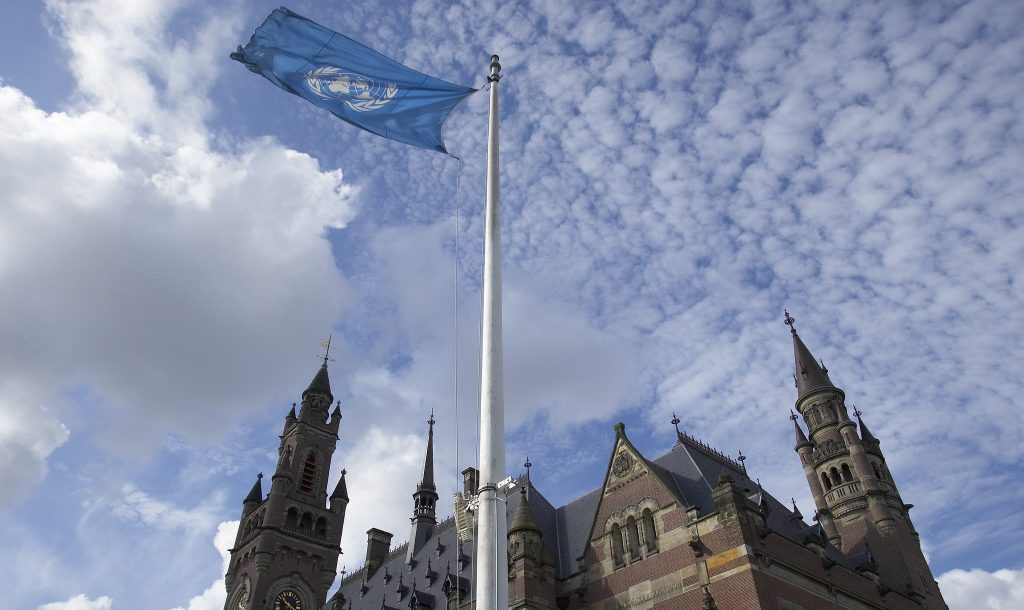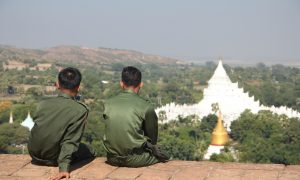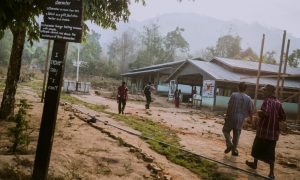We have now passed the anniversary of the ‘clearance operations’ that saw nearly a million of Myanmar’s Rohingya flee to neighbouring Bangladesh. The violence included rape, other forms of sexual violence, arson, torture and a range of physical violence and harassment that amounted to genocide of a unique ethnic and religious group. Prospects for individual, criminal accountability for the genocide seem slim. But a movement in Canada is seriously agitating for their government to take the government of Myanmar to the International Court of Justice to hold the state accountable for its role in the genocide.
Because Myanmar isn’t a state party to the International Criminal Court (ICC) and China and Russia have been acting to prevent the Security Council referring the matter to the ICC, no individuals can be charged with genocide at that court. The ICC is only able to pursue related investigations into forced deportation. But that doesn’t mean States Parties to the Rome Statute can’t prosecute Burmese nationals for genocide under the principle of universal jurisdiction in their own national courts. The work of the new Independent Investigative Mechanism for Myanmar would make this easier. But such cases cannot be tried in absentia, and the countries most likely to pursue such prosecutions have implemented sanctions that involve travel restrictions against key leaders of the Tatmadaw.
However, the obligation to prosecute the crime of genocide predates the Rome Statute of the International Criminal Court to the much older Convention on the Prevention and Punishment of the Crime of Genocide which contains not only individual responsibility, but also state responsibility. In their final report, the UN’s Independent International Fact-Finding Mission on Myanmar, specifically stated that “acts of the Tatmadaw and other security forces of Myanmar, as well as acts of their subordinate units during security operations, are attributable to the State and incur State responsibility.”
Myanmar voluntarily consented to the jurisdiction of the International Court of Justice (ICJ) by ratifying the Genocide Convention in 1957. This treaty has what is known as a compromissory clause, stating that “Disputes between Contracting Parties relating to the interpretation, application or fulfilment of the present Convention, including those relating to the responsibility of a State for genocide or for any of the other acts enumerated in article III, shall be submitted to the International Court of Justice at the request of any parties to the dispute.”
Myanmar has made several reservations to the Genocide Convention, including one to article six, intending that individuals charged with genocide perpetrated in Myanmar would fall solely under the jurisdiction of national courts. However, they have made no reservation to the compromissory clause in article nine. As such, the government of Myanmar can be taken to the ICJ by any State Party to the Genocide Convention. The countries most likely to do so are those with a strong current and/or historical interest in Myanmar. As the former colonial power, home to a sizeable Rohingya community, and agitator for EU sanctions against Tatmadaw leaders, the UK is a possible candidate.
Assessing the Rohingya crisis
With the expulsion of the Rohingya largely a fait accompli, the world must face up to engaging with a very different Myanmar.
Canada is also home of a sizeable Rohingya diaspora and was the first country to independently pass sanctions against serving leaders of the Tatmadaw. On 25 June 2018, the Governor-General of Canada signed into effect sanctions against Lieutenant General Aung Kyaw Zaw, Major General Maung Maung Soe, Brigadier General Aung Aung, Brigadier General Than Oo and Brigadier General Khin Maung Soe from the military; and Brigadier General Thura San Lwin and Commander Thant Zin Oo from the police. At the time, the government stated the objectives of the sanctions were to “signal Canada’s international condemnation of the situation in Myanmar” and to “end impunity for the individuals responsible for, or complicit in, these acts.”
There is certainly a national effort to get the government to bring such a case. In April this year, Independent Senator Marilou McPhedran introduced a parliamentary motion for Canada to initiate proceedings before the ICJ for Myanmar’s breach of the Genocide Convention. Over 140 Canadian Senators, Civil Society Organisations and other individuals signed an open letter to the Minister of Foreign Affairs, Chrystia Freeland. In May, the All-Party Parliamentary Group for the Prevention of Genocide and other Crimes Against Humanity wrote to the Minister, detailing such a proposal, with the rationale that an ICJ case “would provide a more expeditious, easily accessible and appropriate venue to pursue justice on behalf of the Rohingya” than the ICC.
The only other genocide cases heard by the ICJ related to crimes committed during the war in the Balkans. There were two separate cases involving, Bosnia, Serbia and Croatia. According to the All-Party Parliamentary Group, an ICJ case has the capacity to offer some immediate remedy to the human rights situation on the ground that the UN has otherwise been unable to achieve. In their letter to the Minister, they referred to an example from the Bosnian case where the court ruled, within just three weeks of being asked about the matter, that Serbia immediately “take all measures within its power to prevent commission of the crime of genocide” including through the actions of military and police forces.
So, there are reasons to hope that an ICJ case could bring some justice for the genocide perpetrated against Myanmar’s Rohingya. It would certainly be an important step toward showing when the world said “never again” after the genocide in Rwanda, we actually meant to take action against genocide in the future. Now we need to wait and see if the next Canadian government will take such a case to the ICJ and support civil society efforts to pressure them to do so.
 Facebook
Facebook  Twitter
Twitter  Soundcloud
Soundcloud  Youtube
Youtube  Rss
Rss 



